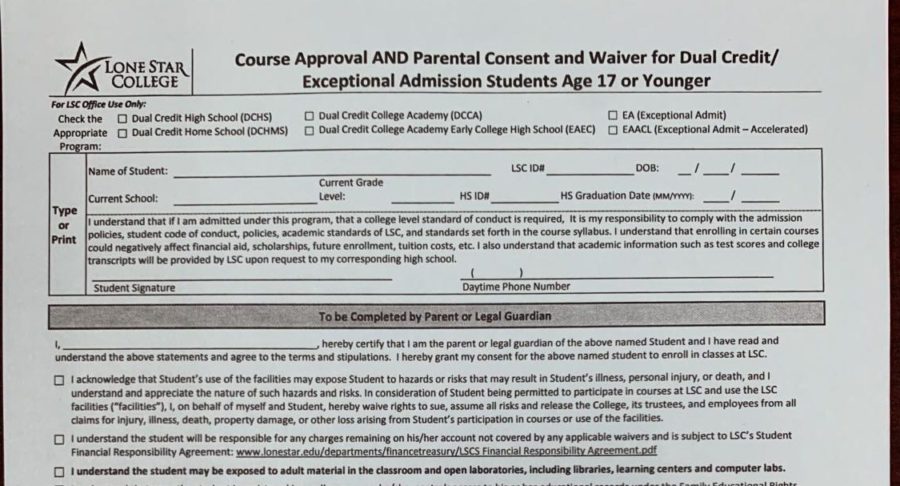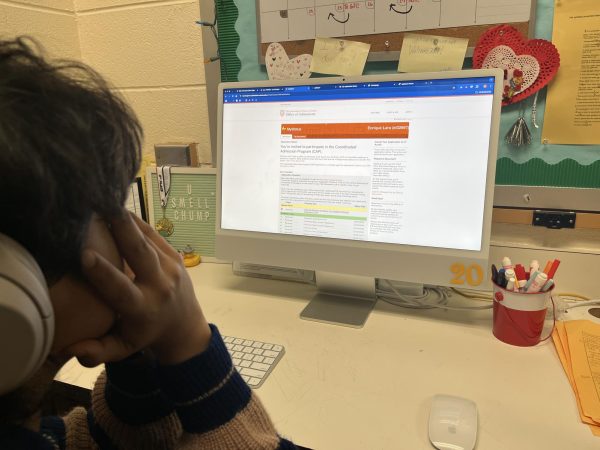Dual Credit or AP?
Key differences between two advanced programs revealed
At the end of a semester, before taking a dual credit course, students must fill out the course approval and parent consent form. This is so Allison Wallace, the dual credit counselor, can approve the student for the courses they will list and to make sure that student’s parents are aware of the college level courses.
When students are trying to boost up their grade point average (GPA) or even have an overall preparation for college, a couple of things should be considered such as taking Dual Credit classes or AP classes. Something students should ask when trying to consider which classes they should take is, “What am I doing after I graduate?”
“The advantage to taking Dual Credit classes is that I am getting college credits while in high school,” senior Justan Sobrino said.
Dual credit classes get a student college credits as long as they finish the semester at the Lone Star Community College with an 85 or higher. However, not all colleges or universities accept these credits. Consider the low chance that these dual credit English, history, dance, math and even some science credits may not be applied if a student is going to an out of state college which turns the heads of students that are thinking about going out of state for college. Students must do their research to see if the colleges of their choice accepts the dual credit work.
“I would take dual credit history but personally, I am going out of state and if you’re going out of state some colleges don’t take it,” junior Katy Lawler said.
Another advanced option is for students to take AP classes. Students have the option to take several advanced classes over the school year and then by the end of the second semester around April or May, they take the AP exam associated with the courses they took that determines whether or not they will receive the college credit. Some students said that a perk for taking DC classes is that they don’t have to take an exam at the end of the year to earn the college course.
“I would recommend dual credit because you don’t have to worry about the AP exam at the very end of the year that could take away the credit that you worked so hard for,” Lawler said.
As for difficulty levels, AP tends to be more difficult than dual credit due to the testing at the end of the year and because the universities that will accept the courses tend to be upper-level and have a standard that requires that extra proof of a knowledge base. But, as for school work and quizzes, they tend to be around the same levels.
“It [the rigor] depends on the class. I take one dual credit class but I’ve heard others might be easier. Right now, my AP English is probably my hardest, but my second hardest might be DC Physics,” junior Sharlene Mendoza said.
Some students who have only taken AP classes are looking to take dual credit in their future..
“I have not taken dual credit classes but I am looking to take one next year; it will be dual credit European History,” Lawler said.










